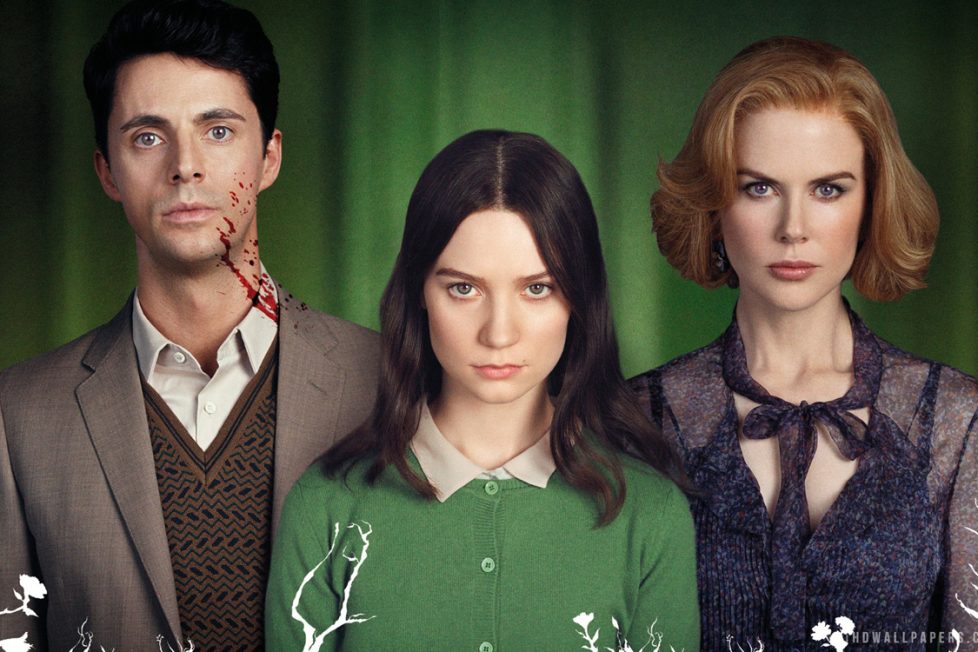STOKER (2013)


Park Chan-wook’s Stoker is a film with a curious DNA. Directed by the man who brought South Korean cinema to the masses with his highly regarded and highly influential ‘Vengeance Trilogy’, Stoker is his first English language film. The script and story, which owe a heavy debt to Alfred Hitchcock’s Shadow of a Doubt, were it written by Wentworth Miller. Yes, the Prison Break guy. Starring an exciting young talent (Mia Wasikowska), and one whose star has somewhat faded (Nicole Kidman), and scored by a man who started life in an English alt-rock band; with such varied ingredients, the results were always going to be interesting. And, while it certainly is interesting, it’s not entirely successful.
The story follows Mia Wasikowska’s India Stoker, a strange but soulful and endearing girl, caught somewhere between problem child and oddball adult. When her beloved father dies in a somewhat suspect car-crash, the already factitious relationship between herself and her drippy, offish mother (Kidman) grow even more strained. When the hitherto unknown Uncle Charlie turns up, having been mysteriously absent for the past few decades, things get even more complicated. Matthew Goode plays Charlie as a suave, seductive presence, with a slightly sinister undercurrent, and both women find themselves drawn to him.
First things first; Park Chan-wook is a genius behind the camera. There’s no getting away from that; it’s clear from every shot of Stoker. Every obscure camera angle, every curious close-up, every gorgeously framed scene mark Stoker out as a particularly beautiful piece of film-making. The strange mish-mash of genres and visual styles on display–Stoker is part gothic fairy-tale, part period-piece, part 50’s rebellion and part horror movie–give the film a unique aesthetic. It’s somewhere between a dream and a nightmare – simultaneously bathed in light and slathered in darkness–and Park uses inventive tricks behind the camera to warp and bend the world into something as unusual and unsettling as the characters who populate it.
The performances, too, are largely fantastic. Nicole Kidman is excellent in this sort of role, her cold, ethereal presence adding to the film’s style, and she plays her character just awful enough to still retain our sympathies. But the real star is Wasikowska, who has that rare quality among actors whereby her character can be doing absolutely nothing on screen, and yet her presence is such that you will sit there and watch her, enraptured all the same.
Unfortunately, as the film goes on, it becomes apparent that the script can’t match up to the mastery behind and in front of the camera. Supplementary characters (like India’s school bullies) are walking archetypes, and deliver lines that are so poorly constructed and obvious that you’d swear they were an attempt at satire or spoof. Sadly not. Others have their characters/motivations switched on a whim, to the point where it’s impossible to take seriously. The plot, too, begins to crumble, becoming increasingly cheap, obvious and ridiculous. The visual artistry is sullied by the asinine plot turns, and what is unquestionably a beautiful film, begins to take on the feel of a naff TV movie in certain moments. Put simply, as a piece of film-making, Stoker is a masterpiece. As a piece of story-telling; significantly less so.
Uncle Charlie, for example, is an infinitely more effective presence before we get to know his back-story He goes from an intriguing, frightening enigma to something we’ve seen a hundred times before. In fact, it would be tempting to suggest that Stoker is a film best enjoyed on mute, but that does a disservice to Clint Mansell’s masterful score, which drips through the film, helping heighten the deliciously deranged atmosphere. If there’s a better modern film composer than Clint Mansell, he’s hiding well.
There are some riveting moments littered throughout Stoker–an exhilarating piano sequence which serves as a stand-in sex-scene will leave you as breathless as it does India–while the fumbling plot does manage the occasional successful flourish and twist. One moment, in particular, dealing with the aftermath of a murder, is not at all what it seems at first, and it’s a reveal delivered with devastating effectiveness.
Park is unquestionably a tremendous film-maker, and he’s assembled a great cast here, who do their best to match the weird, lavish world he’s created for them. And while it doesn’t quite ruin the film, that the screenplay can’t keep pace is very disappointing. For a film that uses several recurring motifs, including characters opening boxes and unwrapping presents to find that they don’t contain what they expected, Stoker should know better than to unravel all of its mysteries if it didn’t have satisfying resolutions to them. Still, if Stoker‘s contents are somewhat suspect, the box remains a piece of genuine, exquisite beauty.
written by: Wentworth Miller
starring: Mia Wasikowska, Nicole Kidman, Matthew Goode, Dermot Mulroney, Lucas Till, Jackie Weaver, Ralph Brown & Phyllis Somerville.
